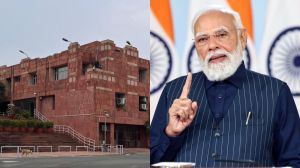Paired with Faldo, Woods seeks the last word
Tiger Woods can find motivation in most places: the blatant, the subtle and the spots in between.

Tiger Woods can find motivation in most places: the blatant, the subtle and the spots in between. He has cut off those who have questioned or crossed him, shunning them with a frigid shoulder. His father, Earl, once described that hypercompetitiveness by saying that Tiger loved to beat the course and everyone on it.
When Woods steps on to the first tee of the 135th British Open on Thursday, he will stand next to Nick Faldo, who was among a chorus of golf commentators who criticized him as he adapted to a swing change last year. Once word got back to Woods, a distant relationship grew even less amicable.
8220;We really don8217;t talk much,8221; Woods said on Tuesday. 8220;I8217;ve only played with him two times since I8217;ve been a pro, and there wasn8217;t a lot of talking there, either.8221; Woods is searching for a bounce-back performance in a major tournament after missing the cut at last month8217;s United States Open. Now he will have Faldo, a six-time major champion, in the same group.
When Woods turned professional in 1996, Faldo was considered by many to be the best player of the decade, a notion that gained credence with his final-round comeback against Greg Norman at that year8217;s Masters.
David Leadbetter, who coached Faldo in his prime, said 8220;When a player is No. 1, there is a certain amount of ego involved. Put two No. 18217;s together, and they8217;ll never get along.8221; Leadbetter added: 8220;Away from the course, Nick was jocular. But on the course, he was self-centered to an extent. He would leave nothing to chance and no stone unturned.8221; DAMON HACK
- 01
- 02
- 03
- 04
- 05































